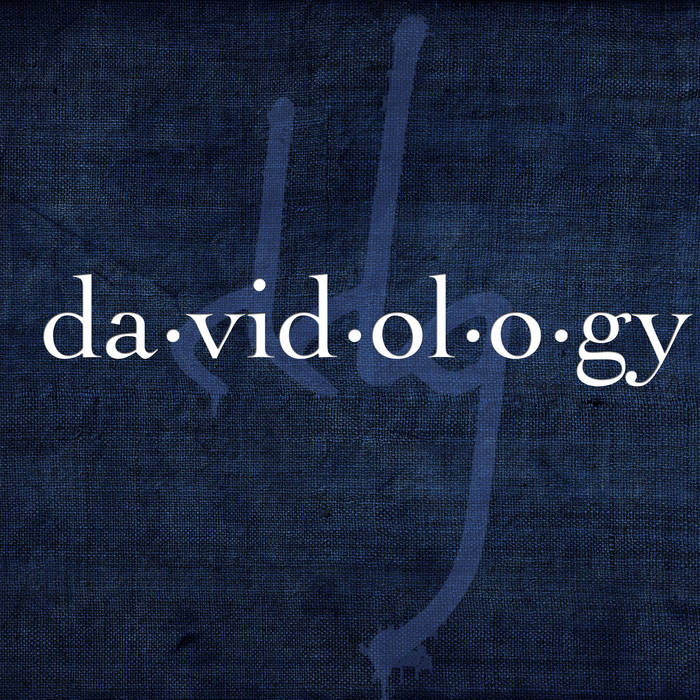- Description
- Curriculum
- Grade

“Davidology – the Life and Legacy of King David”
Total Worship Center Virtual Academy
Winter 2025
ONLINE COURSE SYLLABUS
| Class Meeting Time: | Saturdays, 8:30 am – 10:00 am PST/11:30 am – 1:00 pm EST |
| Zoom Link: | https://us02web.zoom.us/j/89886617802?pwd=oVmmub7pbstu73NKYwqXXDcTZdVxzS.1 |
| Instructor: | Dr. Shaneka Bullins |
| Email: | dr.shaneka.bullins@gmail.com |
| Phone: | (310) 663-5181 |
Required Material/Textbooks:
- Please see each week’s assigned readings on the course portal.
This syllabus is provided as an aid to you in completing this course. Its specific purpose is to acquaint you with the policies by which this class will be conducted, what you can expect of it, and, in turn, what is expected of you. Please keep it in a convenient place so you may refer to it whenever the occasion requires. COURSE DESCRIPTION, LEARNING OUTCOMES, METHODS OF INSTRUCTION, & COURSE MAP Course Description Davidology is an 8-week journey through the life of David—a man after God’s own heart, yet profoundly human in his experiences and struggles. David serves as a type and shadow of us all, embodying the complexities of rejection, faith, ambition, and redemption. Through his life, we see the impact of unresolved influences, the dangers of complacency, and the constant search for validation. This course digs deeply into the lived experiences of David, drawing powerful parallels to our own. By studying David’s story, we uncover timeless lessons on faith, character, and resilience, ultimately revealing how even our greatest flaws can be transformed through God’s purpose. Course Learning Outcomes Students who successfully complete this course will be able to:
- Identify and analyze key events in David’s life, recognizing how they mirror common human experiences of rejection, ambition, and moral failure.
- Examine the influence of relationships on personal development, particularly how David’s interactions with figures like Saul, Jonathan, and his family impacted his journey.
- Reflect on the role of unresolved influences and how they shape one’s character and decisions, using David’s life as a case study to explore these dynamics.
- Engage with and interpret the Psalms as personal expressions of worship, repentance, and emotion, understanding their value in processing life’s struggles.
- Articulate the significance of the Davidic Covenant and how David’s life serves as a foretaste of divine promises and legacies in faith.
- Compose and present a personal psalm inspired by themes in David’s life, integrating course insights to reflect on one’s own faith journey, struggles, and growth.
Methods of Instruction This course incorporates didactic instruction (e.g., lectures via written, audio, & video), group learning (e.g., small group discussions, group projects), and experiential learning (end-of-semester project).
Course Outline: Davidology – The Life and Legacy of King David
| Week | Date | Topic/Course Learning Outcome | Themes & Focus | Assigned Readings and/or Videos (to complete BEFORE class) | Assignment Due |
|---|---|---|---|---|---|
| 01 | Introduction to David: Overlooked and Anointed | David’s early rejection by male figures (father Jesse, brother Eliab). The significance of being chosen despite being overlooked. | 1 Samuel 16:1-13, 1 Samuel 17:12-28 | Reflection: “How does rejection shape our identity?” | |
| 02 | Seeking Validation: David’s Attachment to Saul | David’s complex, toxic relationship with Saul stemming from his need for validation. | 1 Samuel 18-20; 1 Samuel 24 (David spares Saul in the cave) | Journal: “What influences the people we seek approval from?” | |
| 03 | Faith Under Fire: Life on the Run | David’s time on the run from Saul, not out of fear of Saul but fear of himself. Highlight David’s restraint in the cave. | 1 Samuel 21-24; Psalm 57 (written in the cave) | Reflection: “When have you chosen restraint over retaliation?” | |
| 04 | David’s Worship and Psalms: Healing Through Worship | Processing emotions through worship. David’s journey of expressing faith, doubt, fear, and hope in the Psalms. | Selected Psalms (e.g., 3, 13, 23, 27) | Reflection: Write your own Psalm expressing a personal experience. | |
| 05 | Unresolved Influences: Repeating Patterns | The influence of Saul’s tactics on David. Explore how David’s unresolved issues resurfaced with Bathsheba and Uriah. | 1 Samuel 18:17-27; 2 Samuel 11-12; Matthew 13:24-30 (parable of the wheat and tares) | Reflection: “Identify a ‘wheat’ and a ‘tare’ influence in your life.” | |
| 06 | Complacency in Success: Staying Behind in Battle | David’s role as king and the dangers of complacency. His encounter with Bathsheba highlights the importance of vigilance. | 2 Samuel 11; Psalm 32 (David’s repentance) | Journal: “What areas of your life require renewed vigilance?” | |
| 07 | Legacy and Covenant: David’s Lasting Impact | Explore the Davidic Covenant and how God’s promises to David endured despite his flaws. | 2 Samuel 7; 1 Chronicles 17; Psalm 89:1-4 | Study Reflection: “What does it mean to leave a lasting legacy?” | |
| 08 | Final Presentation – Psalms Inspired by David’s Life | Students present their own psalms, reflecting on how David’s journey mirrors human struggles and faith. | N/A | Final Project Presentation: Creative Psalm Writing |
COURSE REQUIREMENTS Assignment Descriptions
| Attendance, Participation, and Professionalism | Students are expected to come to each class meeting. Missing a class means you will miss important content and experiences. If there is an emergency or you will be late, please contact the instructor as soon as possible. During each class, we will engage in some activity that will be required to submit before leaving class. These assignments will be challenging to make up outside of class, so if the absence is excused, the student can make up the assignment in office hours. |
| Types of Assignments |
|
| End-of-Semester Project Planner | Beginning Week 02, at the end of each class, we will spend time reflecting on how we can use what we have learned to construct our final project. We will use our Project Planner to support this effort. |
| End-of-Semester Project: “Creative Psalm Writing” Project Presentations Instructions: Compose a psalm inspired by the life and themes of David, drawing on topics discussed throughout the course. This psalm should reflect personal insights and a deep connection to the themes of worship, repentance, trust, or leadership. |
Online Etiquette: These guidelines are adapted from the Touro College Online Education Blog.
- Before posting your question to a discussion board, check if anyone has asked it already and received a reply.
- Stay on topic. Don’t post irrelevant links, comments, thoughts or pictures.
- Don’t type in ALL CAPS! If you do it will look like you are screaming.
- Don’t write anything that sounds angry or sarcastic even as a joke, because without hearing your tone of voice, your peers might not realize you’re joking.
- Always remember to say “please” and “thank you” when soliciting help from your classmates.
- Respect the opinion of your classmates. If you feel the need to disagree, do so respectfully and acknowledge the valid points in your classmate’s argument. If you reply to a question from a classmate, make sure your answer is accurate!
- If you ask questions, many people may respond. Summarize all answers and post that summary to benefit your whole class.
- Be brief. If you write a long dissertation in response to a simple question, it’s unlikely that anyone will spend the time to read through it all.
- Don’t badmouth others or call them stupid. You may disagree with their ideas but don’t mock the person.
- If you refer to something your classmate said earlier in the discussion, quote just a few key lines from their post so that others won’t have to go back and figure out which post you’re referring to.
- Before asking a question, check the class FAQs or search the Internet to see if the answer is obvious or easy to find.
- Check the most recent comments before you reply to an older comment.
- Be forgiving. If your classmate makes a mistake, don’t badger him or her for it. Just let it go.
- Run a spelling and grammar check before posting anything to the discussion board.
Electronics in Class Students are expected to access this course online. While participating in synchronous activities (e.g., small group discussions, lectures, etc.), students are expected to be fully engaged. Students should not access anything online during class time that is not related to class. Notice of Syllabus Change This syllabus is a guide and every attempt is made to provide an accurate overview of the course. However, circumstances and events may make it necessary for the instructor to modify the syllabus during the semester and may depend, in part, on the progress, needs, and experiences of the students. Changes to the syllabus will be made with advance notice.
-
1I am a spirit, I have a soul, and I live in a body.
-
2Davidology - Replay Week 1
-
3Link to Week 01 Presentation
-
4"Davidology - The Life and Legacy of King David" - Syllabus, Winter 2025
https://docs.google.com/document/d/1qNiW1pQLpXnO9LFWwBLSlwYCBaBzIvMezMo9ADXJqSc/edit?usp=sharing
-
5God's Response to Human Power Structures
https://bibleproject.com/podcast/gods-response-human-power-structures/
-
6God Overturns Human Systems
-
7Reflection Prompt: How Has Rejection Shaped Your Identity?
-
8Here is what a 300-word paragraph looks like:
https://docs.google.com/document/d/1WtUs8Skv-hF_9ALcH4GSjnomGBUx39L_II2qubUT_Mw/edit?usp=sharing
-
9Davidology - Replay Week 2
-
10Link to Week 02 Presentation
-
11Journal: “What influences the people we seek approval from?”
-
12Dynamic of a Guilty Conscience
-
13Saul's Anger | 1 Samuel 18-19 | June 18
-
141 Samuel 18-20 • The Lord is with us in Difficulty• The Coming King • Women of the Word
-
15DAVID AND KING SAUL- WHO BETRAYED THE OTHER?
-
26Link to Week 05 Presentation
-
27Davidology Weekly Zoom Link
https://us02web.zoom.us/j/89886617802?pwd=oVmmub7pbstu73NKYwqXXDcTZdVxzS.1
-
28Bible Parable of Wheat 🌾 and Tares in Action
-
29WISDOM AND WONDER | Weeds and Fire | Matthew 13:24-43 | Philip Anthony Mitchell
-
30Reflection Prompt: Identify a ‘Wheat’ and a ‘Tare’ Influence in Your Life
-
31Davidology - Replay Week 5


Recent Comments